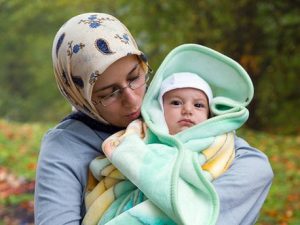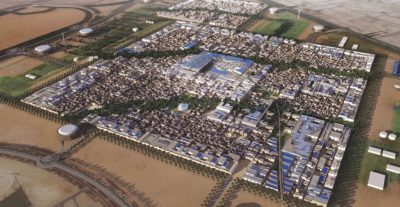 Bring in the mycorrhiza fungi to help crops grow in the desert, suggests new study for the Middle East. Image via DGSgardening
Bring in the mycorrhiza fungi to help crops grow in the desert, suggests new study for the Middle East. Image via DGSgardening
Oil rich Persian Gulf states do not have enough arable land suitable for growing food and animal fodder crops; but they at least have the money available to find ways to improve the lands the do have and make them more agriculturally productive. A recent Reuters story reported that in Abu Dhabi, United Arab Emirates, a survey was recently conducted to determine how much land might be available for agricultural production. This was done in light of problems such as high soil salinity, low ground water aquifers and summer temperatures that reach a high as 120 degrees F during the summer months. The solution? Bring in some microbes to condition the soil.
The survey found that over 200,000 hectares of land is suitable for growing certain crops, providing nature gets a little scientific “assistance” in the form of certain types of types of fungus that enhance the growth of plant roots in arid areas. These fungal microbes would enable plant roots to better absorb available soil nutrients.
 Camel herd Abu Dhabi: can this land be “microbed” to grow crops?
Camel herd Abu Dhabi: can this land be “microbed” to grow crops?
According to Rajendra Pachauri, director general of the New Delhi-based Energy and Resources Institute, the body that carried out the two year Abu Dhabi survey:
“By mixing the soil with these microbes, or what we call mycorrhiza, the roots of a plant can absorb nutrients from the soil that otherwise it would not be able to do given the climate and soil conditions in the Gulf.”
A pilot agriculture project carried out in Abu Dhabi was able to convert 4,000 square meters of “high saline waste land” into productive agricultural use, according to Pachauri. Although the cost of these types of projects is high, countries like Abu Dhabi are willing to invest in them in order to lower their dependency on importing most of their vegetable produce and animal fodder. “We have similar projects going on in India, Kuwait, and Oman,” Pachauri added.
Finding ways to grow crops in arid desert regions is nothing new, as countries like Israel and Egypt have been doing this for years. Israel’s successful drip irrigation systems are now used worldwide, and even farmers in countries like Syria (a country not friendly to Israel) are interested in using this technology for growing crops.
Abu Dhabi and Dubai are also considering the growing of crops in special elevated “vertical farms” in which not only crops can be grown but livestock as well.
If this mycirrhiza idea is successful, than its use will be more widespread, and could help some of these arid countries to be more environmentally sustainable. The big drawback is obviously the costs involved, as the project in Abu Dhabi is just too expensive for many arid countries which are poor, like Jordan.
According to Faisl Taha, of the Abu Dhabi Environmental Agency, which headed the project:
“We are talking about tens of millions of dirhams in investments … but it’s worth it because with this land vegetable and fodder production could be increased by up to 70 percent.”
Some crops, like various species of palm trees, including date palms, are known to grow in saline water (which might also explain where the water to be used in these projects is originating from). And a special vertical farm in Dubai is even being planned to use sea water as the moisture base for growing crops.
But as already noted earlier, these types of project, including the one using fungus microbes, appear to be too expensive for poorer desert countries like Sudan, Chad, and other locations like Kenya, where the average person earns as little as a dollar a day.
The bottom line: if you’re rich, anything dealing with environmental innovation is possible.
::Reuters
More articles dealing with growing crops in arid lands:
Futuristic Dubai Vertical Farm Will Use Seawater to Grow Crops
Agritech Expo in Tel Aviv Shows How to Feed the World
Qatar Plans Environment Program With Syria for Turning the Desert Green



